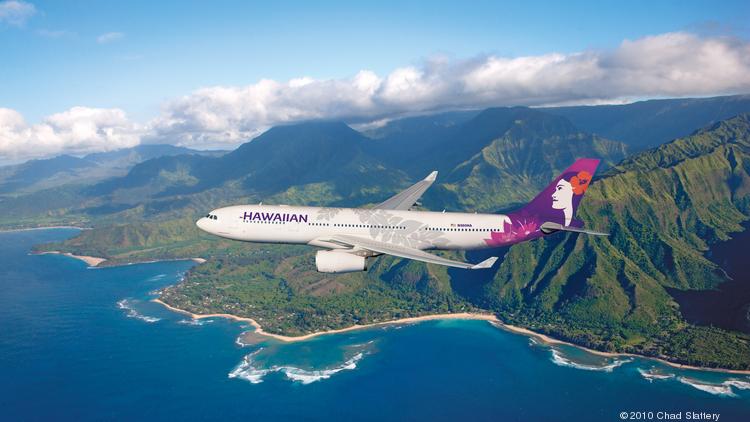Hawaiian Holdings Inc. (HA) had a rough trading day for Wednesday October 23 as shares tumbled 7.1%, or a loss of $-2.14 per share, to close at $27.99. After opening the day at $28.50, shares of Hawaiian Holdings Inc. traded as high as $29.26 and as low as $27.20. Volume was 1.9 million shares over 16,792 trades, against an average daily volume of n/a shares and a total float of 47.29 million.
As a result of the decline, Hawaiian Holdings Inc. now has a market cap of $1.32 billion. In the last year, shares of Hawaiian Holdings Inc. have traded between a range of $40.30 and $22.84, and its 50-day SMA is currently $n/a and 200-day SMA is $n/a.
Hawaiian Holdings Inc provides air transportation for passengers and cargo. Its primary asset is the sole ownership of Hawaiian Airlines. Routes are principally focused on transportation between the Hawaiian Islands, United States, and the South Pacific regions of Asia and Australia. In addition, it operates various charter flights. The company markets through several distribution channels, including its own website, travel agencies, and wholesale distributors. Partnerships have been established with other airlines to accommodate customers, and the company also participates in a frequent-flyer program. Flights in the United States constitute approximately three fourth of total revenue.
Hawaiian Holdings Inc. is based out of Honolulu, HI and has some 7,360 employees. Its CEO is Peter R. Ingram.
Hawaiian Holdings Inc. is a component of the Russell 2000. The Russell 2000 is one of the leading indices tracking small-cap companies in the United States. It’s maintained by Russell Investments, an industry leader in creating and maintaining indices, and consists of the smallest 2000 stocks from the broader Russell 3000 index.
Russell’s indices differ from traditional indices like the Dow Jones Industrial Average (DJIA) or S&P 500, whose members are selected by committee, because they base membership entirely on an objective, rules based methodology. The 3,000 largest companies by market cap make up the Russell 3000, with the 2,000 smaller companies making up the Russell 2000. It’s a simple approach that gives a broad, unbiased look at the small-cap market as a whole.

